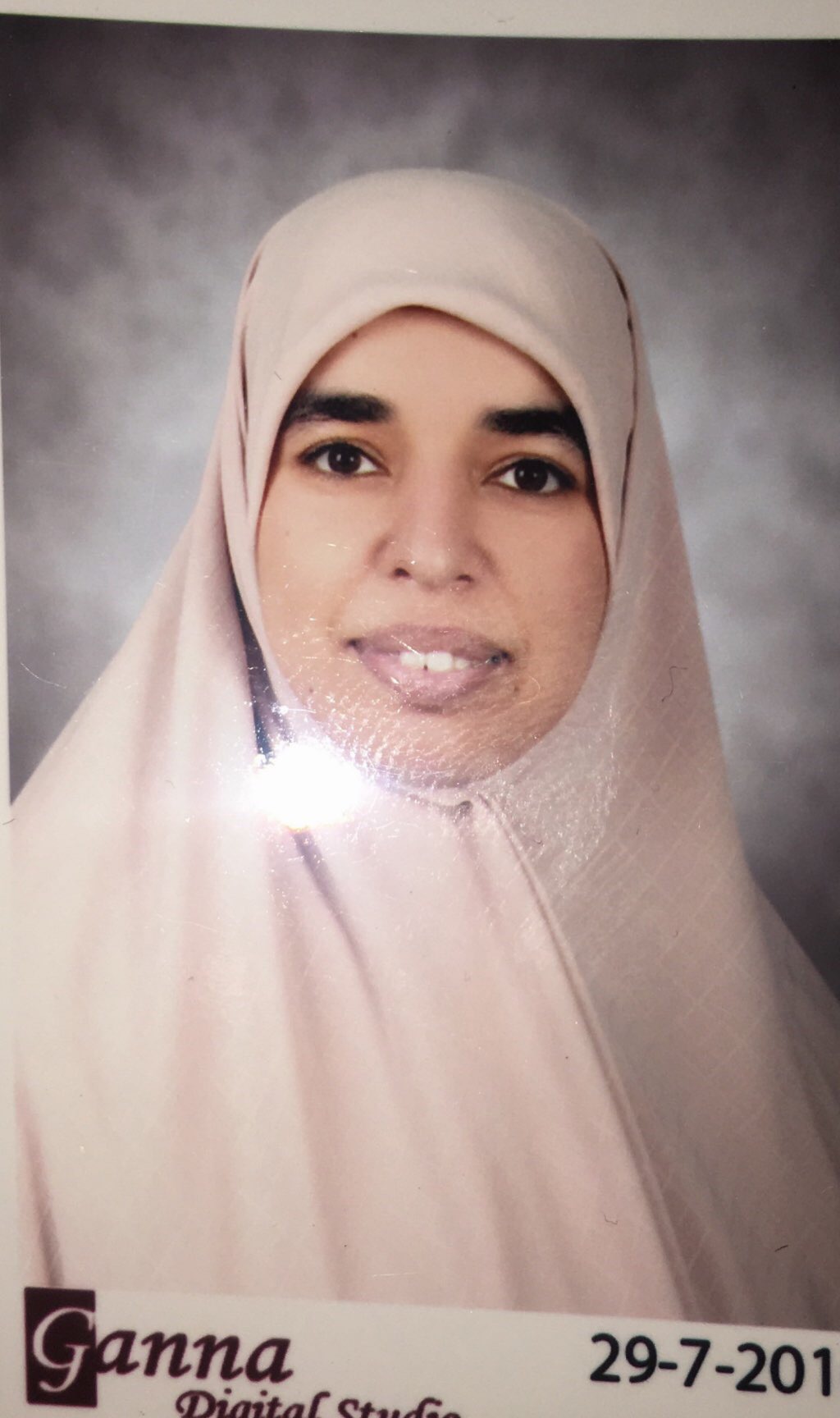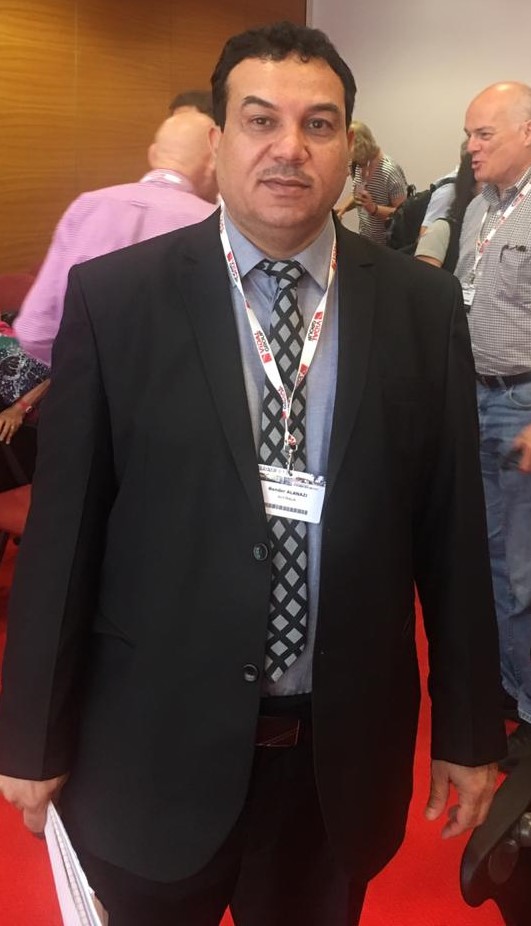Community

Share your story
Posted By VMA at 26 Feb 2025 04:26 PM
Managing difficult patients or family members is a part of medical practice. Demonstrating understanding and effective communication are essential.
Share with us one of your stories and how did you deal with difficult patients or family members in a proper way?
Comments

Wajd Mohammad Hamza Benjabi
23 Jan 2026 12:06 AM
Uncontrolled Diabetes patient I advise him to start diet and exercise and he returned to me and said assuming that you eat what you want and you want me to eat healthy then he refused my advice

Mohammed Mostafa kamel Mostafa
05 Jan 2026 07:56 PM
There is one time when a patient refused to sign informed anesthesia consent for no obvious reason and shouted about it

Anas Saeed Alghamdi
04 Jan 2026 04:13 PM
Listening actively to the patient and not interrupting them will ease the process and decrease the chances to have problems during the communication

Heba Al homaidi
01 Jan 2026 01:47 PM
Managing difficult patients or family members requires patience, empathy, and clear communication. In one situation, a patient was upset due to long waiting time and lack of understanding of the treatment plan. I remained calm, listened actively to their concerns, and acknowledged their feelings. I then explained the situation clearly using simple language and managed their expectations honestly. By showing respect and understanding, the situation de-escalated, and the patient became more cooperative and satisfied.

ABDULMALIK AHMED ALAMIN MOHAMED
31 Dec 2025 02:10 PM
In my experience, here’s how I approach it: Stay Calm, Listen Actively, Acknowledge Emotions, Provide Clear Information, Manage Expectations, Follow-Up. By combining empathy with structured communication, I’ve found that even initially difficult interactions can become constructive and collaborative.

Laila Y Alayadhi
29 Dec 2025 01:15 PM
positive communication is the key

Jumanah Yaser Nassar
28 Dec 2025 08:47 PM
-

Abdullah alssafi
28 Dec 2025 08:07 PM
…………….

FAYEZ ALOTAIBI
24 Dec 2025 09:04 PM
….

Saeed Ali M. Abu-Eshy AlMalki
24 Dec 2025 02:59 PM
I shall share with you this story: A female pt. had pathological fracture of lt femur due to 1ry hyperparathyroidism. She needed Parathyroidectomy. Her husband refused surgery saying : how do you want me to be convinced of surgery in neck treating fracture in the femur?. He was taken to a quite room by the surgeon, and he told him : you see this electric switch and the lamp over there? he said yes then the surgeon continued : when we put the switch on , the lamp lights up, and this the same mechanism of a small gland in the neck controlling a bone in the lower limb. The husband stood up and embrace the surgeon and said : Go ahead k, May ALLAH help you.

Priyanka Eswaramangalath Viswambaran
22 Dec 2025 06:19 PM
Always listen to the patients to get the complete story and try to understand them. Effective communication helps to deal with difficult patients and family.

Khaldoun A ElAbed
21 Dec 2025 07:06 PM
I understand that effective communication and showing empathy when dealing with complaints are important, but I believe the support that the medical staff receives from the healthcare establishment is more important when settling these complaints, especially when the issues are trivial, and no harm has been inflicted on patients

Nourah alduhiem
21 Dec 2025 04:01 PM
Effective communication helped me to deal with my patients

Mona Aid Algamdy
18 Dec 2025 11:42 PM
effective communication

Aminah Yazeed Almadani
14 Dec 2025 01:33 AM
By good communication the patient can understand the plan and the compliance will be better ,When this done professionally, it builds trust, ultimately leading to better health outcomes.

Zainab Nasr Mahmoud
10 Dec 2025 06:40 PM
try to control the situation to be proactive inform him that we are apperciate him and to be calm to understand the issues and clarify the situation and solve the proplem

Zinab Nasser Ali Rashed
09 Dec 2025 10:06 PM
Always listen and show respect and empathy to patient complaints.

Badr Khalifah AlHaggy
09 Dec 2025 06:18 PM
always be nice and professional

Nooralhuda Abdulaziz A Alturkestani
02 Dec 2025 12:16 AM
By listening carefully understand what going on then empathize with them

Youssef Muhammad Al-Sahli
24 Nov 2025 01:52 AM
Try to treat patients with kindness, courtesy, and professionalism.

Meriem amrani
23 Nov 2025 07:26 PM
Being attentive, explain the plan clearly and calmly to the patient and cheked his understandly.

Rayan Bassas
20 Nov 2025 12:33 AM
,.

ALAA Abdullah Alsobhi
19 Nov 2025 12:21 PM
Active listener ,effective communication, calm, patient and problem solver

Amr Rashad Hakeem
19 Nov 2025 11:49 AM
hi

AMAAR AHMAD ALMUOSBAH
17 Nov 2025 11:48 AM
By listening carefully understand what going on then empathize with

Dalia abdu wazen
14 Nov 2025 04:04 PM
One day, I had a patient who was very upset and refused to do the procedure. She was scared, anxious, and speaking loudly to the staff.
I approached her calmly, sat next to her, and asked her to tell me what was worrying her.
After listening, I discovered that she had a bad experience in another hospital and was afraid it would happen again. I reassured her, explained the steps in a simple way, and promised that I would stay close and monitor her personally.
Her tone changed immediately.
She relaxed, agreed to do the procedure, and afterwards she held my hand and said:
“Thank you… I felt safe with you.”
This moment reminded me that compassion + listening = the key to handling difficult patients

Jawaher Abdulbaqi Abdulhakim
12 Nov 2025 12:53 PM
Jawaher abdulhkim

Aljowhara Murdi alenazi
11 Nov 2025 04:03 PM
.

Rehab Saud Saeed Alahmadi
09 Nov 2025 05:25 PM
Be helpful

SHAYMAA A ABDALAL
02 Nov 2025 01:14 AM
give them there space

Reham Mousa Yahya Aljudayba
29 Oct 2025 10:37 PM
By listening carefully understand what going on then empathize with them

Jaber Abdulrahman Mahzari
29 Oct 2025 12:55 AM
By listening actively

Hanan Alharbi
26 Oct 2025 07:16 PM
One morning, a patient came to the lab very anxious and angry because his test results were delayed. He insisted that he needed them immediately for a doctor’s appointment.
I stayed calm and listened carefully to his concerns without interrupting. Then I explained politely that the delay was due to a machine calibration process to ensure accurate results. I reassured him that accuracy was our top priority and offered to personally call him once the results were ready.
After hearing this, the patient’s tone softened. He thanked me for taking the time to explain and later returned to express appreciation for the quick follow-up.
This experience reminded me that empathy, patience, and clear communication are key in handling difficult situations professionally.

Asma Alhatlani
25 Oct 2025 10:40 AM
Be kind , calm and Active listening

Yosra Moosa Farhan
19 Oct 2025 12:31 PM
Effective communication with patients should be conducted in a clear and easily understandable manner, taking into account the patient’s level of understanding and cultural background to ensure proper comprehension and cooperation in the care plan.

Khawla Sami AlKuraya
16 Oct 2025 01:08 PM
Try to treat patients with kindness, courtesy, and professionalism.

AHMED FAIZ M ALRADADI
14 Oct 2025 05:08 PM
A patient’s family once became upset about long waiting times in our clinic and began to argue with the staff. I approached them calmly, listened to their concerns, and explained that the delay was due to a medical emergency. I reassured them their turn was next and later introduced a system to update patients about waiting times. Through empathy and clear communication, the situation was resolved peacefully and patient satisfaction improved.

Haifa Al-Jundy
14 Oct 2025 01:43 PM
Do the right thing first , ignore bad behavior, if the patient use logics we can explain more until until misunderstanding resolved

manal haredey mohammad baiomi
13 Oct 2025 03:37 PM
be calm, understand well, reassure and fast solving the problem

Abdulhafidh Ahmed kadhi
10 Oct 2025 10:51 PM
most of the difficult patients and families can be managed with careful listening to them and give them enough time to talk to discover where is the problem and if they have possible suggestions that is doable with patient care take the maximum interest.

Abdulhafidh Ahmed kadhi
10 Oct 2025 10:51 PM
most of the difficult patients and families can be managed with careful listening to them and give them enough time to talk to discover where is the problem and if they have possible suggestions that is doable with patient care take the maximum interest.

AMJAD YOUSUF
06 Oct 2025 03:22 PM
By listening actively

Tahani Abdullah Mohmmad Alsanaani
06 Oct 2025 01:27 PM
Communication with patients especially difficult ones is a challenge but I always keep in mind that keep it ethical, professional and nothing personal then carry on my practice

Ghaida Hussein Altalhi
04 Oct 2025 08:30 PM
Be nice

Reem saeed alahmari
03 Oct 2025 10:47 PM
One day I was working alone in the outpatient pharmacy, and a patient became very upset because his prescribed medicine was not available. I calmly explained that I understood his frustration, then I reassured him that alternatives with the same effect were available. I immediately contacted the doctor to adjust his prescription, and the patient finally left feeling relieved and satisfied.

Shorouq Rafa Alruwaili
03 Oct 2025 01:01 AM
A patient’s father was upset because he felt the team wasn’t explaining the treatment clearly. I calmly invited him to speak in private, listened without interrupting, and then explained the plan using simple language. Once he felt heard and understood, his attitude changed completely. It reminded me how empathy and clear communication can turn tension into trust

Amirah Mojidea AlShammari
30 Sep 2025 11:16 PM
By demonstrating understanding and effective communication, the nurse was able to diffuse the situation. The family felt heard and more at ease, which positively impacted the patient’s experience as well. This approach highlights the importance of empathy and clear communication in managing difficult interactions in healthcare settings.

Mashael Saad alrowaili
28 Sep 2025 02:18 PM
In my practice I once dealt with a patient’s family member who was very upset about waiting time for an appointment . I listened without interrupting, acknowledged their frustration, and calmly explained each step of the process. By keeping my tone respectful, giving clear and simple information, and offering a specific timeline, the tension eased and we built trust. Empathy and transparency were the keys to resolving the situation

JAWAHER ALYAMI
28 Sep 2025 02:14 PM
Always be nice and professional

Ali Hatem Rizq
28 Sep 2025 10:44 AM
A patient with high blood pressure was anxious about starting a new medication because he feared side effects. I listened to his concerns, explained in clear language how the medicine works, and reassured him by highlighting the common versus rare side effects. I also encouraged him to monitor his blood pressure at home and share results on his next visit.

IDRIS SAIF ELDIN BABIKER
24 Sep 2025 06:45 PM
I welcome the complainant and offer him/her a sit. I listen with full attention and show empathy. If the complainant is not happy, I apologise for what happened. If still not convinced, I request him/her to cool down and explain to me the issue. I have to respond to the issue as fast as possible. I thank the complainant for bringing this matter to my notice.

Areen Alfakhrani
23 Sep 2025 07:08 PM
Listen carefully

Sarah Aladwani
22 Sep 2025 02:55 PM
Thanks

Zainab Sayed Husain Almosawi
21 Sep 2025 04:48 PM
By knowing what is happening

Fitin Aloufi
21 Sep 2025 03:46 PM
Listen carefully

hania luay daadoue
17 Sep 2025 01:36 AM
by telling them that you understand their feeling and you could work together to find a solution

Hanin Hussain Abusabah
11 Sep 2025 02:43 PM
I presented with an NICU consultant and observed how did he communicated with the family to release bad news and I was surprised how much he was perfect in that. I would built my knowledge and skills to be such senior in future.

Dr. Mohammad Tarif Mando
09 Sep 2025 01:26 PM
Use effective communication
Calm patient
Understand the problem
Apologies
Try to resolve problem

Abdulqader ibrahim ali Alhifthi
08 Sep 2025 11:41 PM
good

Taif alshammari
08 Sep 2025 04:45 AM
understand diffrent social backgrounds

Bshayer altalhi
05 Sep 2025 10:11 PM
You

Hassan Haider AlRamadan
02 Sep 2025 10:40 AM
by knowing what is happening

Abdulfattah Ibrahim Alsarori
31 Aug 2025 09:01 PM
Use effective communication
Calm patient
Understand the problem
Appologise
Try to resolve problem

Muneera Almana
29 Aug 2025 02:40 AM
the medical insurance have been disccontinued for the patient , he was shouting for not being able to receive treatment today.
i had to calm him by calling the insurance officer to know why it has been discotinued.
however he was able to get treatment with the dr.

Sabah Barjas Alotaibi
28 Aug 2025 03:14 AM
understand their issues and take an action

Rania Mohammed Srouji
26 Aug 2025 01:06 AM
Always be nice and professional

Hasan Mohammed Semilan
22 Aug 2025 04:04 PM
good

Hamood Alsudais
21 Aug 2025 06:22 PM
Always keep in mind that they are under a lot of pressure
حاول ان تتفهم

Nader Bokhari
21 Aug 2025 09:10 AM
Recognize Warning Signs:
Be aware of escalating behaviors like raised voices, threats, or physical aggression.
Ensure Personal Safety
2. De-escalation Techniques:
Stay Calm:
Active Listening:
Validate Feelings:
Open-Ended Questions

Yasmeen Bitali Alkedaisi
18 Aug 2025 05:09 PM
I always try to be kind with difficult patients, and we usually have a good response, Alhamdulillah.

Bayan Ali Al-Mogheerah
17 Aug 2025 11:59 PM
Communication with patients is achieved through respecting them, listening attentively, giving them sufficient time, and speaking to them in a moderate tone of voice.

Mohammed Emad Abualhamayel
15 Aug 2025 08:39 PM
I usually try to communicate well with the patients

Wael Abdulla
14 Aug 2025 09:37 PM
Hello

Rehab reid darwesh
13 Aug 2025 07:50 PM
agood example for good comunication and its resulr in solving problem

Ahmad Abdullah AL-Shehri
12 Aug 2025 04:35 PM
A few years ago, I had a patient’s daughter come into the consultation room visibly upset. Her father had been admitted for several days, and she felt the medical team was not giving her enough updates. She began speaking in an accusatory tone, interrupting frequently, and even raising her voice.
Instead of reacting defensively, I paused, maintained calm body language, and said, “I can see how worried you are about your father. Let’s take a few minutes to go through all your questions.” I listened without interrupting, repeated back her main concerns to show I understood, and then provided clear, simple updates about her father’s condition.
By the end of the conversation, her tone softened. She thanked me for listening and explained that her frustration came from fear, not anger. This encounter reminded me that most difficult interactions are rooted in emotion, not malice — and active listening is often the most powerful tool to resolve them.

NAHAR NIZAR
10 Aug 2025 08:17 PM
.

Reem Yusuf Almulla
10 Aug 2025 11:11 AM
Thanku

Raneem Sami Hijazi
10 Aug 2025 03:30 AM
Patient in ER , her situation required immediate admission for treatment but she wanted DAMA, advised her and explained the risks of taking such action and my concerns about her situation and possible complications, she was convinced and agreed to the plan

Abdullah Ali Fallatah
05 Aug 2025 05:51 AM
During my work in a rural hospital, a patient’s family became upset over delays in getting a CT scan. I calmly listened to their concerns, explained the resource limitations, and reassured them the patient was receiving proper care. Once they felt heard and informed, their frustration eased. It was a reminder of how empathy and clear communication can defuse tense situations.
.jpg)
TAWFIQ ALI SHIHAB
04 Aug 2025 08:57 PM
The most common complaint that I face from my patients are the unavailability of certain medications. I try within my capabilities to explain the availability of alternatives and assure them that they will be informed if their medications become available

Maisaa Dawod Almowaled
04 Aug 2025 09:43 AM
Good communication skills are essential to ensure success

Raghad salman alsubhi
02 Aug 2025 07:55 PM
By effective communication the patient understand his or her treatment for proper management and compliance, able to manage the effect and side effect of his treatment.

BADER ABUMELHA
02 Aug 2025 02:10 PM
When you have a difficult patient just remember that behind every behavior there is a good intention that we don't see a lot so try to understand them and put yourself in their place so you can understand them more and be completely respectful with them with appreciation

Mohammed Haidar Badedi
27 Jul 2025 11:18 AM
.

Mohammed Haidar Badedi
27 Jul 2025 11:18 AM
.

Mohammed Haidar Badedi
27 Jul 2025 11:17 AM
.

Noor faisal aynausa
25 Jul 2025 09:50 PM
I faced a situation where a patient's family was upset about an unavailable medication. By listening calmly and explaining the alternatives with support from the medical team, they accepted the new treatment plan.

Khalid M Ashour
14 Jul 2025 02:57 PM
we had a neonate with complex congenital cyanotic heart disease incompatible with life, after sever sessions and multiple second opinion, they accepted the reality.

Hodan Abdullahi Ahmed Barri
05 Jul 2025 04:29 PM
The key to dealing with any conflict or issue, is effective communication and active listening.

Yousra Hassan Slamah
01 Jul 2025 08:41 PM
Dealing with an Angry Family Member
During one of my hospital shifts, a patient’s daughter became very upset because she felt we were not doing enough for her mother. She raised her voice and seemed unwilling to listen. Instead of responding defensively, I remained calm and listened carefully to her concerns. I acknowledged her fear and frustration, then explained the treatment plan in simple, clear language. I also involved the consultant to reassure her. After that, her attitude changed completely—she felt heard and respected. The communication helped build trust and reduce tension.

Bahia RABEHI
01 Jul 2025 03:24 PM
In case of conflict, the most important thing is to listen in order to understand the patient's concerns and to address them. Most of the time, it stems from a lack of communication.

Shouq Almutairi
29 Jun 2025 05:00 PM
An elderly came to the pharmacy angry for delay medications, I listened calmly and explained the issues and offered a temporary supply and contacted his doctor for approval the patient apologised and thanked me

Ibrahim Alnami
26 Jun 2025 11:19 PM
With the load of the patients effective communication can be challenging

Asma Mohammed AlMugeiren
24 Jun 2025 10:07 PM
you should communicate in a simple clear honest way to meet pt expectation satisfaction and better outcomes and therapy plans

Doaa Galal
24 Jun 2025 10:33 AM
I listened empathetically to the family's concerns, provided clear and honest information, and maintained professionalism to de-escalate the situation. This approach fostered trust and eased their anxiety.

kamal dabelah
23 Jun 2025 11:15 AM
we faced neonate with syndrome with poor prognosis ,parents initially were in denial stage we used our communication skills and meeting with the parents , and finally they accepted what have been told

MOHAMMED ABDULRAHMAN ALKOHAIZ
18 Jun 2025 06:47 PM
I recall one instance where a patient’s family was extremely upset about the perceived delay in treatment. The tension was high, and emotions were raw.
Rather than becoming defensive, I took a step back and focused on listening actively. I invited the family into a quiet space, acknowledged their concerns without interrupting, and validated their emotions by saying, “I can see this has been very stressful for you. Let’s talk about what’s been happening.” That simple gesture of empathy helped de-escalate the situation.

Amal Ali Al-Thabet
15 Jun 2025 08:38 PM
By effective communication the patient understand his or her treatment for proper management and compliance, able to manage the effect and side effect of his treatment.

Fidel Manzo
07 Jun 2025 09:04 PM
Stay calm. Listen. Empathise. Provide solution based on client's preference and safety as top priorities.

Noor Habib
24 May 2025 07:06 PM
A common example is when a family member insists of attending therapy session. I usually invite the person in and explain the process. Then, i asked them if there were anything they felt i needed to know about. Then i kindly excuse them out to finish the rest of the session with my patient.

abdulrahman tariq alkhowater
23 May 2025 12:56 AM
I found the most effective way is to stay calm, and try to find out which way of communication works best with the person.

alaa hamdy azzam
22 May 2025 07:51 PM
In simple and clear language, you can communicate well with the patien

Nouf sahel Alharbi
21 May 2025 08:22 PM
I once dealt with a very anxious family member by first listening calmly to their concerns without interrupting. I acknowledged their emotions, then clearly explained the patient’s condition and treatment plan. By involving them in the discussion and offering regular updates, the situation became more cooperative. Empathy and clear communication made all the difference.

Zeinab Osman Mohamed Khalifa
20 May 2025 07:02 PM
In simple and clear language, you can communicate well with the patient.

Faisal Alamer
20 May 2025 12:51 PM
=

Raghad Abdullah
20 May 2025 12:05 AM
Sometimes, I deal with difficult patients who try to go over the rules or push for priority. So what I used to do with them is tell them I truly want to help and understand their urgency, but at the same time, I can't skip the system to protect their rights and to provide their desired care or service effectively and in a timely manner. After that, I politely avoid eye contact to prevent further argument. Sometimes, I deal with difficult patients who try to go over the rules or push for priority. So what I used to do with them is tell them I truly want to help and understand their urgency, but at the same time, I can't skip the system to protect their rights and to provide their desired care or service effectively and in a timely manner. After that, I politely avoid eye contact to prevent further argument.

SHEREEN FAWZY HAFEZ IBRAHIM
19 May 2025 08:07 AM
Explanation with clear simple words giving examples respecting patients concerns

Amin A. Marghalani
17 May 2025 11:43 PM
Clear communication of the treatment plan in simple language improved patient compliance.

Bander dowahi Alanazi
13 May 2025 07:52 AM
Understand the problem.
Empathise with the individual.
Manage your emotions.
Create a safe space for open communication.
Practise active listening.
Be proactive.
Watch your body language.
Figure out a solution.

Yasser Aljehani
10 May 2025 07:08 PM
A tough patient who is under the influence of hallucinogenic medication required going along with his hallucination to calm the situation down.

Aqilah yahya majhali
10 May 2025 03:17 PM
By effective communication the patient understand his or her treatment.

Omnia Mohammad aljehani
06 May 2025 03:48 PM
The way that any one of medical field can be successful is how they connect with everyone, including patients the must important human being to help and support. I have a difficult customer every day and the best way to deal is to clear and manage by calming them and giving the exact message that they need to get.

fawaz abdullah alghamdi
05 May 2025 12:56 PM
patient was confused about how to take their medication. I used simple language, showed them how to use it step by step.
Effective communication really important

Heyam Humood AlKhalaf
27 Apr 2025 02:51 PM
using an effective communication while explaining the treatment plan for the patient with a simple language helped them to comply with the treatment

Rakan Turki Alotaibi
26 Apr 2025 01:55 AM
A doctor was treating a patient who was frustrated about the wait time in the clinic and started raising their voice, demanding immediate attention. Instead of reacting defensively, the doctor took a deep breath and acknowledged the patient's feelings by saying, “I understand how frustrating long wait times can be, and I appreciate your patience.” Then, the doctor explained that while the clinic strives to provide timely care, certain cases can sometimes take longer than expected.
By maintaining a calm and empathetic tone, the doctor redirected the conversation towards finding a solution, such as offering to reschedule if the patient preferred a shorter wait time.

Yousef Mohammed Saeedi
25 Apr 2025 02:10 PM
By effective communication the patient understand his or her treatment for proper management and compliance, able to manage the effect and side effect of his treatment.

Feras Sulaiman Juraybi
24 Apr 2025 09:46 PM
By effective communication the patient understand his or her treatment for proper management and compliance, able to manage the effect and side effect of his treatment.

MOHAMMED AKBAR
24 Apr 2025 11:36 AM
effective communication .calm and understandable

Nawar Ammar Alshakhs
23 Apr 2025 11:28 AM
By effective communication the patient understand his or her treatment.

Zahraa Hussain Aljeshi
23 Apr 2025 01:44 AM
I once had a family member who was very upset about a patient's condition and kept asking the same questions repeatedly. I calmly acknowledged their concerns, saying, "I understand how difficult this is for you." I explained the situation clearly and patiently, avoiding medical jargon. By staying empathetic and providing regular updates, I helped ease their anxiety and build trust in the care process.

Hisham Sami silsilah
22 Apr 2025 10:59 PM
A father of a adolescent girl was refusing to transfer his girl from the isolation room to a normal bed after the viral panel showed negative result , and he was concerned that if we transfer his daughter she will get viral infection, so we had a long time communication about the benefits, risks , and that we need the isolation room for pending cases in the ER department and finally after a long discussion he agreed to let the team transfer the pt

Ruba Hashim Alabdulmohsen
22 Apr 2025 10:44 PM
Effective communication plays a crucial role in positively influencing a patient's acceptance of the treatment plan. When done professionally, it builds trust, clarifies expectations, and enhances patient cooperation, ultimately leading to better health outcomes.

Hussam Hassan Asiri
22 Apr 2025 10:31 PM
By effective communication the patient understand his or her treatment for proper management and compliance, able to manage the effect and side effect of his treatment.

Nuha Salem alfawaz
21 Apr 2025 09:23 PM
A patient was confused about how to take their medication. I used simple language, showed them how to use it step by step.
Effective communication really important

verna gloria
21 Apr 2025 08:06 AM
By effective communication the patient understand his or her treatment for proper management and compliance, able to manage the effect and side effect of his treatment.



A 50 year old male patient is angry because he has been waiting for a long time and feels his problem is not taken seriously
So I tried to express his feeling and apologize ,staying calm and involve him in care